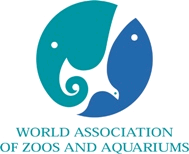OTGV #49 - Biodiversity Zoo -1
Broadcast Date: 23/02/04
The world is getting smaller. No, no .. Not the physical size of the Earth,
It’s the living space for the non-human species that's shrinking.
The United Nation Environment Programme or UNEP estimates that some 60 thousand species are disappearing off the face of the Earth each year.
Dr Shawn Lum, Vice President of the Nature Society and a trainer of biologist teachers explains what this figure means.
"This 60 thousand figure is based on an estimate. If you assume there's 'X' number of species over a given area that are found no where else, then with this rate of destruction then this is the magic number, 60 thousand. So I don't think there are 60 thousand documented species which is not say there aren't 60 thousand species disappearing."
Director of Geneva-based World Association of Zoos and Aquariums Peter Dollinger says it is the smaller organisms and plants that constitute the number, not the larger animals.
"It’s a natural fact that we have a huge loss of biodiversity. However, the majority of the species UNEP referred to are invertebrate species or plant species. The number of vertebrate species such as mammals, birds, reptile that are disappearing is of course much, much smaller."
Is over ten years since the first Earth Summit in
Yet, each year that passed saw more environmental destruction, greater global warming and loss of species.
Some people say throughout history species come and go and extinction is a natural order of things.
Dr Lum disagrees.
"Even after humans are long gone and there's some sort of animals left then they might re-evolved into a whole array of diversity again but you know this is a cop out because this potential mass extinction is caused basically by human activity and large scale habitat destruction which we could possibly could avoid if we put our minds to doing it and we can do something about this. Do we have the will to this? Are we going to make this a priority and tackle that as the global crisis that it is? If not are we just going to quietly watch these things going away before we even know sometimes what it is that were lost. To just say well extinction has happened in the past. Frankly that's a pretty weak excuse."
Dr Lum lists the reasons why we, the humans are the cause for the current mass extinctions.
"One is the continued growth in human population. Industrial revolution which allowed us to manufactured things at a large scale but also we use resources at a high and sometimes unsustainable rate. All those factors put together with the last thing which I think is extremely, well if you want to call it, greedy sort of lifestyle that just consumes and consumes resources and take away natural habitat. So essentially that's bad news for all the other living things that share the planet with us."
Those running botanic and zoological gardens, aquariums or marine parks see they have a role to play in providing some reservoir of biodiversity however small.
Mr Dolliner again.
"Already in the 1940s, the role of zoos was defined by a Swiss scientist as serving Recreation, Education, Research and Conservation. Then in 1993, the zoos issued the first World Zoo Conservation Strategy, they stipulate that the roles of recreation, education and research must also serve conservation. So conservation has the priority."
But some nature lovers feel that such institutions must do more than in the education component.
Dr Shawn Lum on how zoos can help modify their visitors’ behaviour by getting them to ask certain questions such as this.
"What can I do to help save that particular habitat? Either through my behaviour as a consumer, you know buying certain kinds of environmentally-friendly, dolphin-friendly kind of things, or don't invest in corporation that are involved in destruction of natural habitat and so on. But I think that information needs be made available to a zoo-going public. You have to bring up that level of public knowledge so that individuals can say this is what I need to do and can do as an individual. As oppose to saying well, that’s a problem far away, I know nothing about it, I am helpless you know."
But other animal lovers see the zoos and aquariums more for their shortcomings.
Some animals such as polar bears exhibit certain obsessive-compulsive traits in an enclosed environment.
President of local Animal Rights group, Acres Louis Ng
"If you based a study by
Will institutions such as zoos and marine parks be good agents for saving some fast disappearing species of animals?
Should they do more besides being just being a place where animals are kept for the viewing pleasure of humans?
Tune in to next week's On The Grapevine as I look at the debate on the role of zoos and aquariums in the fight to preserve the biodiversity left in this world.
This is Chong Ching Liang for Newsradio 938.
===============================================
Newsradio 938 (now 938Live)

http://www.938live.sg/
World Association of Zoos and Aquariums

http://www.waza.org
Nature Society Singapore

http://www.nss.org.sg/
Animal Concerns, Research & Educations Society

http://www.acres.org.sg/


0 Comments:
Post a Comment
<< Home